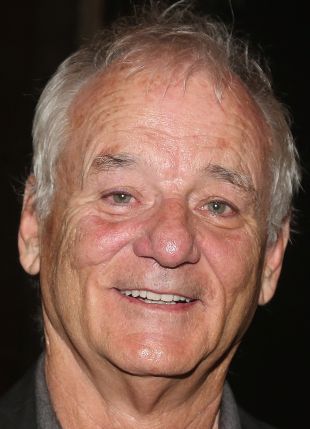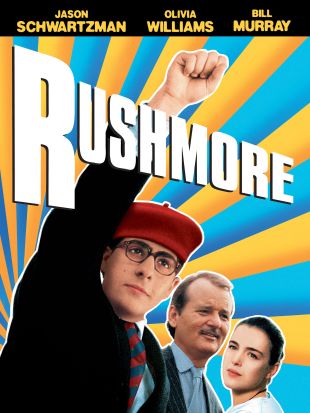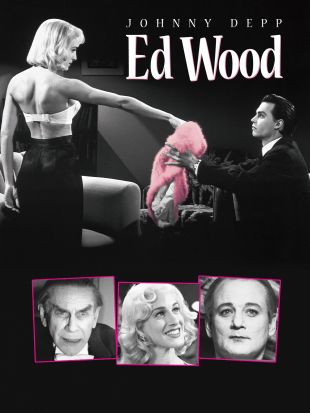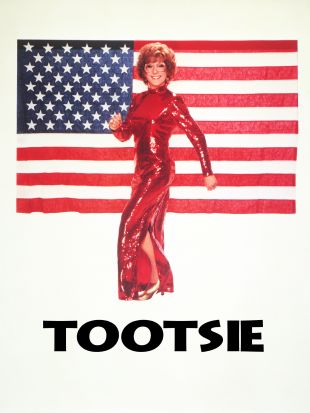Of the many performers to leap into films from the springboard of the television sketch comedy series Saturday Night Live, Bill Murray has been among the most successful and unpredictable, forging an idiosyncratic career allowing him to stretch from low-brow slapstick farce to intelligent adult drama. Born in Wilmette, IL, on September 21, 1950, Murray was an incorrigible child, kicked out of both the Boy Scouts and Little League. At the age of 20, he was also arrested for attempting to smuggle close to nine pounds of marijuana through nearby O'Hare Airport. In an attempt to find direction in his life, he joined his older brother, Brian Doyle-Murray, in the cast of Chicago's Second City improvisational comedy troupe. He later relocated to New York City, joining radio's National Lampoon Hour. Both Murray siblings were also in a 1975 off-Broadway spin-off, also dubbed The National Lampoon Hour; there Murray was spotted by sportscaster Howard Cosell, who recruited him for the cast of his ABC variety program, titled Saturday Night Live With Howard Cosell.
On the NBC network, a program also named Saturday Night Live was creating a much bigger sensation; when, after one season, the show's breakout star Chevy Chase exited to pursue a film career, producer Lorne Michaels tapped Murray as his replacement. Murray too became a celebrity, developing a fabulously insincere and sleazy comic persona which was put to good use in his first major film, the 1979 hit Meatballs. He next starred as the famed gonzo journalist Hunter S. Thompson in the film biography Where the Buffalo Roam, a major disaster. However, 1980's Caddyshack was a masterpiece of slob comedy, with Murray memorable as a maniacal rangeboy hunting the gopher that is slowly destroying his golf course. The film launched him to the ranks of major stardom; the follow-up, the armed services farce Stripes, was an even bigger blockbuster, earning over 40 million dollars at the box office. Murray next appeared, unbilled, in 1982's Tootsie before starring with Dan Aykroyd and Harold Ramis in 1984's Ghostbusters. The supernatural comedy was one of the decade's biggest hits, earning over 130 million dollars and spawning a cartoon series, action figures, and even a chart-topping theme song (performed by Ray Parker Jr.).
Murray now ranked among the world's most popular actors, and he next fulfilled a long-standing dream by starring in and co-writing an adaptation of the W. Somerset Maugham novel The Razor's Edge. Few fans knew what to make of his abrupt turn from broad farce to literary drama, however, and as a result the film flopped. Murray spent the next several years in self-imposed exile, making only a cameo appearance in the 1986 musical comedy Little Shop of Horrors. After much deliberation, he finally selected his comeback vehicle -- 1988's Scrooged, a black comic retelling of Dickens' A Christmas Carol. While it performed moderately well, it was not the smash many predicted. Nor was 1989's Ghostbusters II, which grossed less than half of the first picture. The 1990 crime comedy Quick Change, which Murray co-directed with Howard Franklin, was also a disappointment, but 1991's What About Bob? was an unqualified hit. In 1993, Murray earned his strongest notices to date for Groundhog Day, a sublime comedy directed by longtime conspirator Ramis.
Beginning with 1994's acclaimed Ed Wood, in which he appeared as a transsexual, Murray's career choices grew increasingly eccentric; in 1996 alone, he starred in the little-seen Larger Than Life as a motivational speaker, co-starred as a bowling champion in Kingpin, and appeared as himself in the family film Space Jam. In 1998, Murray took on a similarly eccentric role in Wes Anderson's Rushmore. Playing a business tycoon competing with an equally eccentric 15-year-old (Jason Schwartzman) for the affections of a first grade teacher (Olivia Williams), Murray did some of his best work in years and won the Best Supporting Actor award from the New York Film Critics Circle. The film's success helped to put the actor back in the forefront, and he drew further exposure that year from his appearance as a sleazy lawyer in the relentlessly trashy Wild Things. The following year, he could be seen in Cradle Will Rock, Tim Robbins' look at the often contentious relationship between art and politics in 1930s America.
Though the mere thought of Murray as Polonius in a film adaptation of William Shakespeare's Hamlet may have elicited dumbounded looks and confused laughter early in his career, that was precisely how the versatile thespian ushered in the new millennium in director Micheal Almereyda's modern updating of the classic drama. Subsequently landing laughs as the superspy point person Bosley in the big screen adaptation of the classic 1970's television hit Charlie's Angels, Murray's interpretation of the character would be taken over by popular comic Bernie Mac in the film's 2003 sequel. After taking a brief voyage into gross-out territory with the Farrelly brother's Osmosis Jones in 2001, a re-teaming with Rushmore director Anderson resulted in a small but memorable supporting performance in the same year's The Royal Tenenbaums.
In 2003 Murray essayed the role that would offer what was perhaps his most heartfelt combination of personal drama and touching comedy to date in director Sofia Coppola's acclaimed indie film Lost in Translation. Cast as a washed up American actor who strikes up a tentative friendship with the young wife of a superstar photographer while on a stay in Japan to endorse a popular brand of whiskey, Murray's low-key charm proved the perfect balance to co-star Scarlett Johansson's youthful malaise. Virtually across the board, critics were bowled over by the subtle depth of Murray's performance, leading to Best Actor honors from The New York Film Critics Circle, The Boston Society of Film Critics, The Los Angeles Film Critics Association, The San Francisco Film Critics Circle, The National Society of Film Critics, The Golden Globes, and The Independent Spirit Awards. But the one award that remained elusive to Murray was Oscar. Though nominated, the prize ultimately went to Sean Penn for Mystic River.
In 2004, along with providing the voice for a CGI version of Garfield the cat, Murray once again teamed up with director Wes Anderson, starring as as a world-renowned oceanographer in The Life Aquatic with Steve Zissou. While The Life Aquatic was met with mixed reviews, Murray's performance in the 2005 Jim Jarmusch film Broken Flowers netted virtually unanimous acclaim. Over the next several years, Murray would maintain his selective film career, appearing in acclaimed films like Get Low, Passion Play, and Moonrise Kingdom.



